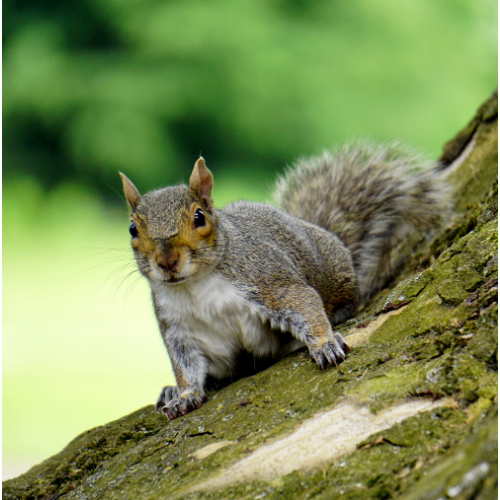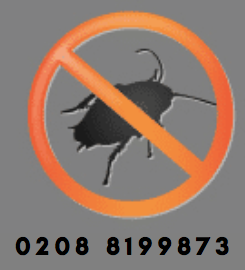Squirrel Control in Merton: Strategies for Effective Squirrel Management
Squirrels can be charming creatures to observe in their natural habitat, but when they enter residential or commercial spaces, they can become a nuisance. Squirrels can cause damage to property, chew on electrical wires, and raid bird feeders or gardens. Merton offers professional squirrel control services to effectively manage squirrel populations and minimize their impact. In this article, we will discuss the importance of squirrel control, signs of infestation, and effective strategies offered in Merton.

Understanding the Importance of Squirrel Control: Squirrel control is necessary to prevent damage to property and ensure a safe living environment. Squirrels can chew through insulation, wood, and electrical wiring, which poses fire hazards and can lead to expensive repairs. Additionally, squirrels can raid bird feeders, damage gardens, and create nests in attics or chimneys. Effective squirrel control is crucial to protect your property and maintain a harmonious coexistence with these wildlife species.
Recognizing Signs of Squirrel Infestation: Detecting a squirrel infestation early is important for prompt and effective control. Look out for the following signs:
- Sounds of activity: Squirrels are active during the day, and their movement and scratching sounds can be heard in attics, chimneys, or wall cavities.
- Damaged property: Squirrels have strong teeth and may chew on wooden structures, electrical wires, or plastic pipes. Look for gnaw marks or signs of damage.
- Nesting materials: Squirrels build nests using leaves, twigs, and other materials. If you notice piles of nesting materials in or around your property, it may indicate squirrel activity.
- Squirrel sightings: Seeing squirrels frequently in your yard, especially around potential entry points, can suggest an infestation.
Professional Squirrel Control Solutions in Merton: Merton offers professional pest control services equipped with the expertise and tools to effectively manage squirrel populations. Here are some strategies they may employ:
- Inspection and Assessment: Certified technicians will conduct a thorough inspection of your property to identify squirrel entry points, nesting areas, and signs of activity. This assessment helps in developing a targeted treatment and prevention plan.
- Exclusion and Entry Point Sealing: To prevent squirrels from entering your property, pest control professionals will identify and seal off potential entry points. This may involve repairing gaps in roofs, installing mesh or wire barriers, and reinforcing vulnerable areas where squirrels can gain access.
- Trapping and Removal: In situations where squirrels have already entered your property, pest control services may employ live trapping techniques to capture and remove squirrels safely. These trapped squirrels are then relocated to appropriate habitats.
- Habitat Modification: Pest control professionals may recommend habitat modifications to discourage squirrels from frequenting your property. This can include trimming tree branches near buildings, removing food sources such as bird feeders, or using squirrel-proof feeders.
- Repellents and Deterrents: Squirrel repellents and deterrents may be employed to discourage squirrels from specific areas. These can include visual deterrents like reflective tape or predator decoys, as well as scent-based repellents that make your property less appealing to squirrels.
- Environmental Modifications: Pest control services can provide guidance on modifying the environment to make it less conducive for squirrel habitation. This may involve clearing debris, sealing off potential nesting areas, or installing deterrent devices, such as motion-activated sprinklers.
- Education and Prevention: Professional squirrel control services offer education on squirrel behavior, prevention techniques, and steps you can take to make your property less attractive to squirrels. They can provide advice on bird feeder placement, proper waste management, and securing potential food sources.
Frequently asked questions (FAQs) about squirrel control in Merton
- Q: How do I know if I have a squirrel infestation? A: Signs of a squirrel infestation include hearing scratching or movement sounds in attics or walls, spotting gnaw marks on wooden structures or electrical wires, finding piles of nesting materials, and frequent squirrel sightings around your property.
- Q: Are squirrels dangerous? A: Squirrels are generally not dangerous to humans. However, they can cause property damage, chew on electrical wires, and disrupt bird feeders or gardens. In rare cases, squirrels may bite if they feel threatened, but such instances are uncommon.
- Q: Can I control a squirrel infestation on my own? A: While some DIY methods may provide temporary relief, professional squirrel control is generally more effective for complete management. Squirrels can be persistent and finding and sealing entry points can be challenging. Professional pest control services have the expertise and tools to address the infestation effectively.
- Q: Are the treatments safe for my family and pets? A: Yes, professional pest control services prioritize the safety of your family and pets. They use humane and safe methods to manage squirrel populations. Pest control professionals will also provide recommendations on precautions and safety measures to follow during and after the treatment.
- Q: How long does squirrel control take? A: The duration of squirrel control depends on factors such as the severity of the infestation, the size of the property, and the treatment methods employed. Pest control professionals will provide you with an estimated timeframe based on your specific situation.
- Q: Can squirrels come back after the treatment? A: Squirrels can find new ways to enter your property if preventive measures are not followed. Pest control professionals will not only remove squirrels but also identify and seal entry points to prevent re-entry. Following their advice and implementing necessary modifications can help prevent future infestations.
- Q: What can I do to deter squirrels from my property? A: Some deterrent measures include trimming tree branches near buildings, removing potential food sources such as bird feeders, using squirrel-proof feeders, and employing visual or scent-based repellents. Pest control professionals can provide specific recommendations based on your property.
- Q: Can I trap squirrels myself? A: In many regions, it is required to have a license or permit to trap and relocate squirrels. Additionally, handling and trapping squirrels can be challenging without proper equipment and training. It is advisable to consult with professional pest control services for safe and legal trapping methods.
- Q: How can I prevent squirrels from accessing my attic? A: Preventive measures include sealing off potential entry points, such as gaps or openings in roofs or walls. Pest control professionals can assess your property, identify vulnerable areas, and recommend appropriate sealing techniques to prevent squirrel access.
- Q: Can squirrels be relocated? A: In some cases, squirrels can be safely trapped and relocated to appropriate habitats. However, local regulations and restrictions may apply. Pest control professionals can provide guidance on legal and ethical considerations for squirrel relocation.
If you have further questions or concerns about squirrel control in Merton, do not hesitate to reach out to professional pest control services. They will provide you with expert advice and tailored solutions to address your specific squirrel infestation.
Squirrel Behavior and Environment: Adaptations and Characteristics
Squirrels are fascinating creatures known for their nimble movements, acrobatic abilities, and bushy tails. They exhibit a range of behaviors and have adapted to various environments. Let’s explore the behavior and characteristics of squirrels in relation to their natural habitat:
Arboreal Lifestyle:
Squirrels are arboreal animals, meaning they primarily inhabit trees. Their bodies are well-suited for this lifestyle, with sharp claws that enable them to climb vertical surfaces and navigate branches with ease. Squirrels have a keen sense of balance, allowing them to move swiftly and gracefully among tree canopies.
Diurnal Activity:
Most squirrel species are diurnal, meaning they are active during the day. They have excellent vision and rely on daylight to forage for food, explore their surroundings, and interact with other squirrels. Diurnal activity helps squirrels take advantage of available food sources and avoid nocturnal predators.
Nesting and Shelter:
Squirrels build nests called dreys, which are typically located in tree branches or hollow tree cavities. Dreys are constructed using leaves, twigs, moss, and other materials, providing shelter and protection from the elements. Squirrels may also create underground burrows for nesting, especially during the colder months.
Food Hoarding:
Squirrels are well-known for their habit of hoarding food. They collect and store nuts, seeds, and other food items during periods of abundance to sustain them during scarcity, such as winter months. Squirrels have impressive memory and spatial awareness, allowing them to remember the locations of their hidden food caches.
Omnivorous Diet:
Squirrels are opportunistic feeders with a primarily herbivorous diet. They consume a variety of nuts, seeds, fruits, buds, flowers, and fungi. However, squirrels are also known to opportunistically eat insects, bird eggs, and small vertebrates when such food sources are available.
Communication:
Squirrels communicate with each other through various vocalizations, body language, and scent marking. Vocalizations include barks, chirps, and alarm calls to warn other squirrels of potential dangers. Tail movements, such as flicking or flagging, serve as visual signals. Squirrels also mark their territories using scent glands located on their cheeks and feet.
Reproduction:
Squirrels have a mating season, during which males compete for access to females. Males may engage in elaborate courtship displays and chase other males away from receptive females. Squirrel pregnancies last for a few weeks, after which the female gives birth to a litter of typically three to five young. Female squirrels provide maternal care and nursing to the newborns until they are independent.
Adaptations for Survival:
Squirrels have evolved various adaptations to survive in their environments. Their sharp incisor teeth continuously grow, allowing them to gnaw on hard objects, such as nuts and tree bark. Their bushy tails serve multiple purposes, including balance control, communication, and insulation. Squirrels also have keen eyesight and excellent spatial memory, enabling them to navigate complex environments and locate food sources.
Habitat and Range:
Squirrels are found in diverse habitats, including forests, woodlands, urban parks, and suburban areas. Different species of squirrels have adapted to specific environments and may have varying habitat preferences. For example, tree squirrels, such as gray squirrels, predominantly inhabit forested areas, while ground squirrels, like chipmunks, prefer open grasslands or meadows.
Understanding squirrel behavior and their interaction with the environment is crucial for managing human-wildlife interactions and promoting coexistence

